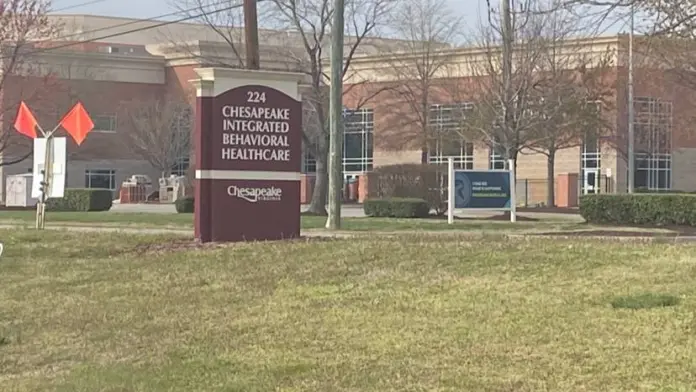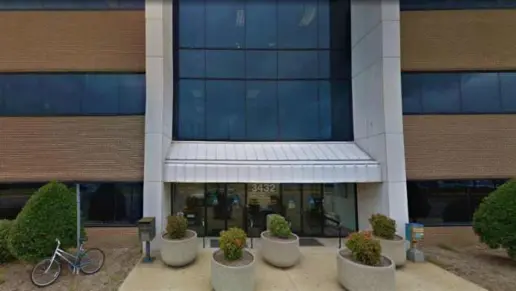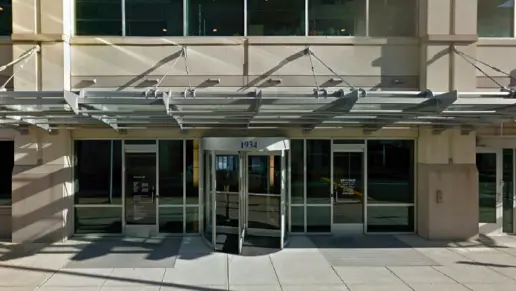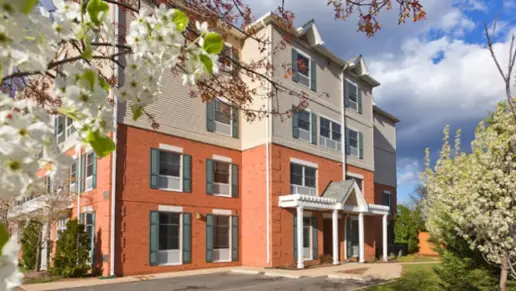About Chesapeake Integrated Behavioral Healthcare
Chesapeake Community Services Board is a community organization in Chesapeake, Virginia. They provide outpatient addiction treatment and mental health care for children, adults, and families. Priority is given to pregnant and parenting women.
Chesapeake Integrated Behavioral Healthcare in Chesapeake, Virginia, assists you if you are dealing with a substance use disorder. Due to a substance abuse and mental health administration block grant this organization is able to offer priority services for recovery and treatment even if you don’t have health insurance. Nobody is turned away from this facility because they are unable to pay. They can also assist you in applying for Medicaid if you don’t have insurance.
They provide a variety of treatment choices based on your unique situation. Their services are provided on an outpatient basis and include comprehensive assessments, adult and group counseling and adolescent individual therapy. This outpatient treatment lets you receive support without having to enroll in inpatient programs, giving your treatment plan more flexibility.
Their office based opiate treatment (OBOT) program offers medication assisted treatment (MAT) for those who are addicted to heroin or prescription opiates. In order to lessen cravings and withdrawal symptoms a licensed doctor or nurse practitioner may prescribe medication.
Staff complete a thorough evaluation to find the best course of action for your needs. This assessment will assist in determining whether OBOT is appropriate for you or if a different kind of treatment might be more helpful. They aim to develop a personalized plan that focuses on your unique situation and helps you on your path to recovery.
They provide crisis mental health services as well. A crisis counselor is on call round the clock. They also prioritize Chesapeake residents who are pregnant, ensuring they receive treatment within 48 hours of contact.
Latest Reviews
Rehab Score
Gallery

Location
Accepted Insurance
Other Forms of Payment
Private insurance refers to any kind of healthcare coverage that isn't from the state or federal government. This includes individual and family plans offered by an employer or purchased from the Insurance Marketplace. Every plan will have different requirements and out of pocket costs so be sure to get the full details before you start treatment.
Self-pay involves paying for treatment out of your own pocket. You can use savings or credit, get a personal loan, or receive help from family and friends to fund your treatment. If you don't have insurance or your insurance plan doesn't cover a specific program, self-pay can help ensure you still get the care you need.
Financial aid can take many forms. Centers may have grants or scholarships available to clients who meet eligibility requirements. Programs that receive SAMHSA grants may have financial aid available for those who need treatment as well. Grants and scholarships can help you pai for treatment without having to repay.
Medicare is a federal program that provides health insurance for those 65 and older. It also serves people under 65 with chronic and disabling health challenges. To use Medicare for addiction treatment you need to find a program that accepts Medicare and is in network with your plan. Out of pocket costs and preauthorization requirements vary, so always check with your provider.
Medicaid is a state based program that helps lower-income individuals and families pay for healthcare. Medicaid covers addiction treatment so those enrolled can use their coverage to pay for rehab. When a program accepts Medicaid the client often pays very little or nothing out of their own pocket.
Military members, veterans, and eligible dependents have access to specific insurance programs that help them get the care they need. TRICARE and VA insurance can help you access low cost or no cost addiction and mental health treatment. Programs that accept military insurance often have targeted treatment focused on the unique challenges military members, veterans, and their families face.
Addiction Treatments
Levels of Care
Programs



Clinical Services
Cognitive behavioral therapy in Virginia is a short term form of talk therapy. Participants usually have homework between sessions, which may include journaling, self talk, and setting SMART goals. The aim is to transform negative thought patterns into positive ones.
For those experiencing mental health challenges, including substance use disorder, dialectical behavior therapy in Virginia offers an evidence based method of treatment. This therapy teaches skills for emotional regulation and interpersonal relations so you can break free from negative patterns.
When men and women in Virginia participate in group therapy sessions, they learn to freely express their emotions in a non judgmental setting. This helps you process your feelings and begin to understand the link between your thoughts, feelings, and behaviors that are associated with addictive behavior.
Men and women in Virginia use individual therapy to focus on addiction related challenges as a necessary part of their drug and alcohol addiction treatment. Your therapist guides you in developing coping strategies, setting realistic goals, and building a strong foundation for an improved quality of life.
Motivational interviewing in Virginia allows clients to examine their lives and consider their options. It is particularly useful if the client lacks confidence in their ability to change or is feeling uncertain about their desire to change.
Trauma therapy helps you understand and manage the emotional and physical responses that often follow witnessing or experiencing traumatic events. Using therapeutic interventions, your therapist works with you to reframe that experience, which in turn reduces your anxiety and helps you regain control over your life.
If you and your partner are facing challenges, couples therapy in Virginia is designed to help you work through those in a healthy way. Common challenges that couples therapy addresses include conflict resolution, financial disagreements, intimacy challenges, health issues, and substance abuse.
Family therapists work with all members of the family to understand the roles they play in the addiction dynamic. Addressing these patterns is crucial to developing healthier ways to interact and support each other, as well as contributing to a more effective recovery for their loved ones.
Amenities
-
Residential Setting
-
Private Rooms
Accreditations

State Licenses are permits issued by government agencies that allow rehab organizations to conduct business legally within a certain geographical area. Typically, the kind of program a rehab facility offers, along with its physical location, determines which licenses are required to operate legally.
State License: Virginia
Contact Information
224 Great Bridge Boulevard
Chesapeake, VA 23320



